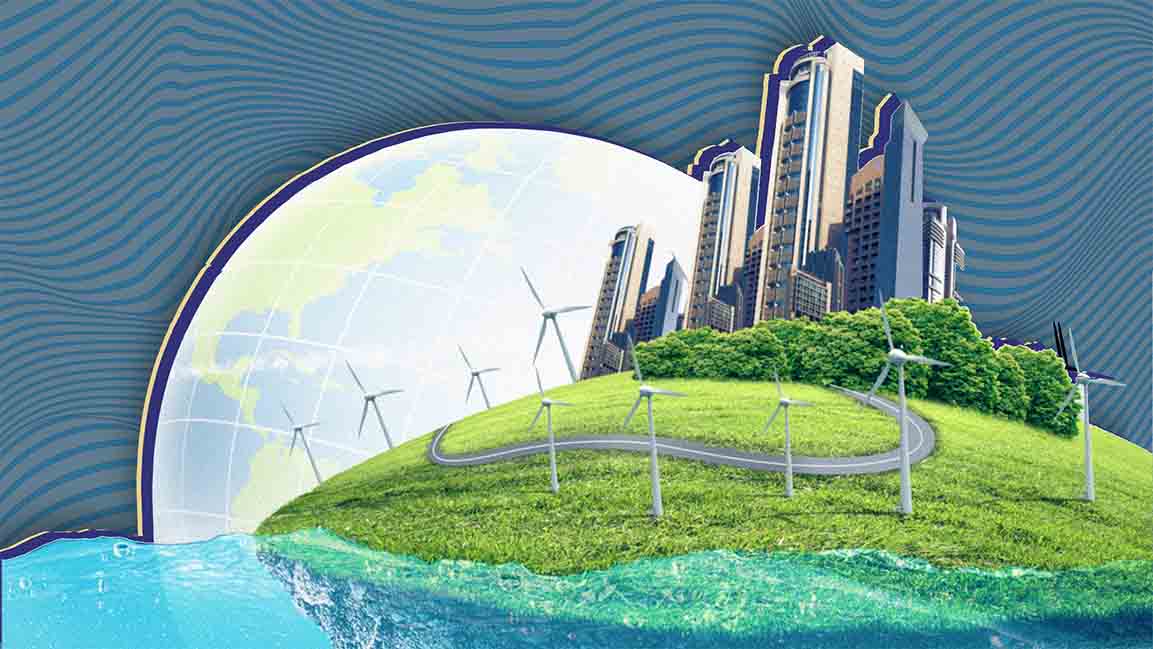- | 1:00 pm
GCC’s $2 trillion sustainable construction surge aims for global net-zero charge, finds report
The report endorses adopting solar photovoltaics, eco-friendly construction materials, and AI-powered building systems.

Now accepting applications for Fast Company Middle East’s Best Workplaces For Women 2023. Click here to register.
As the United Arab Emirates gears up to host COP 28, the focus intensifies on the region’s commitment to achieving net-zero goals.
Sustainability-driven construction technologies are taking the lead in this transformation, poised to exert significant influence, as unveiled in the insights from Strategy Middle East, a PwC network, and Dar, a consultancy specializing in planning and design.
The new report positions the MENA region as a frontrunner in the global pursuit of sustainable construction practices. As investments in new ‘built environments’ soar, reaching up to $2 trillion by 2035, the region has the potential to establish itself as a beacon of innovation and eco-consciousness.
Within the projected construction surge in the MENA region, there exists an opportunity to reduce lifecycle emissions by 50-60% significantly. Mega-projects like Saudi Arabia’s NEOM and Qatar’s Lusail Entertainment City are heralds of this progressive movement.
The report emphasizes the economic impact of the region-wide construction boom, estimating that it could generate a significant 10% of GDP annually and create 4.3 million jobs if the recommendations are implemented.
Dr. Yahya Anouti, Partner with Strategy Middle East and the leader of the sustainability platform at PwC Middle East, says, “The GCC region’s planned scale of investments uniquely positions it to pioneer a range of sustainable technologies and processes. Overall, the built environment is responsible for a high emissions footprint of around 37 percent of energy use, 39 percent of CO2 emissions, and 40 percent of material use globally.”
“Our estimates show that a reduction in these emissions for urban development could take the region more than halfway to realizing its net-zero emissions goals,” he added.
The report endorses adopting technologies like solar photovoltaics, eco-friendly construction materials, and AI-powered building systems for immediate and future sustainable environments. It emphasizes the role of regulators in incorporating sustainable practices into building codes and urges developers to embrace such techniques, setting emission reduction targets.
The Strategy& Dar report offers 17 actionable applications to reduce emissions in mobility, landscaping, development density, mechanical systems, and construction processes.
“If GCC stakeholders – including policymakers, innovators, and developers – embrace a truly innovative and sustainable approach to urban development, they face a golden opportunity to set a new global standard,” says Balsam Nehme, Head of Sustainability, Dar Al-Handasah.































